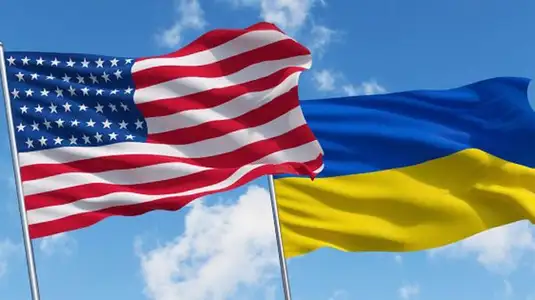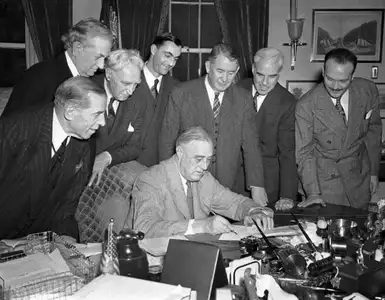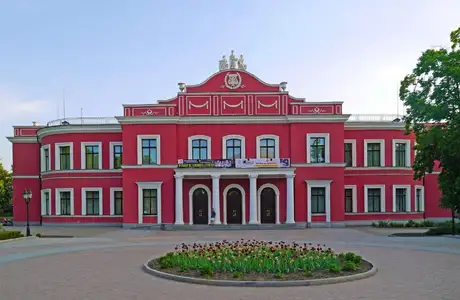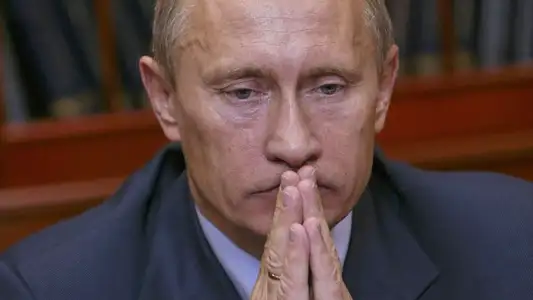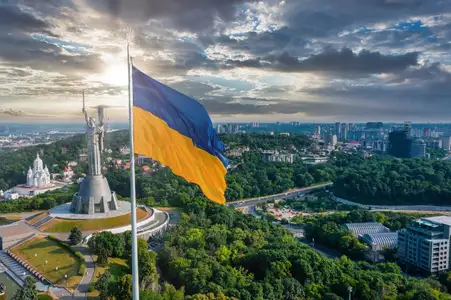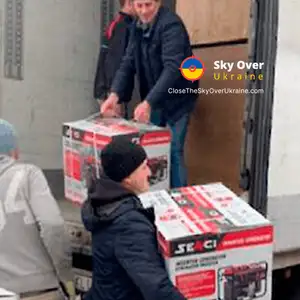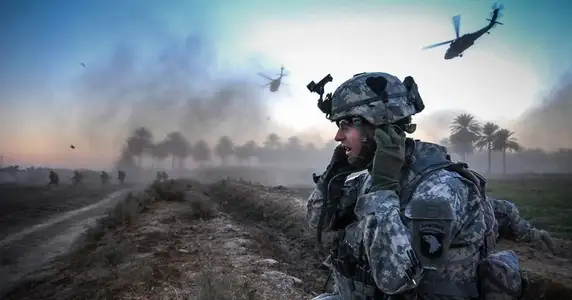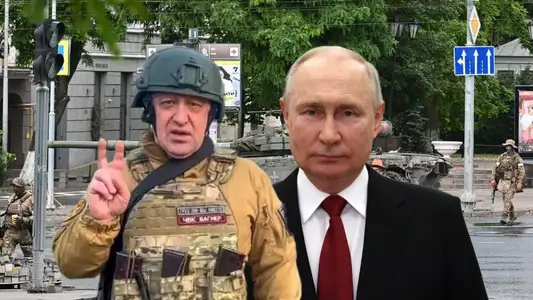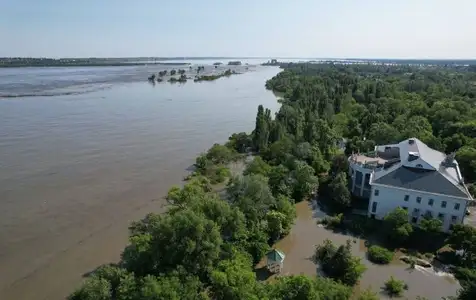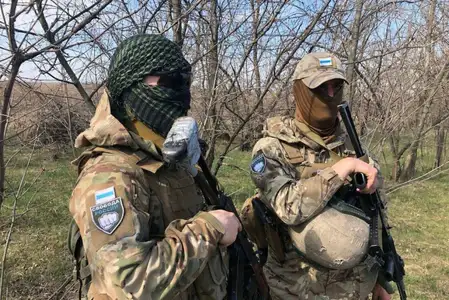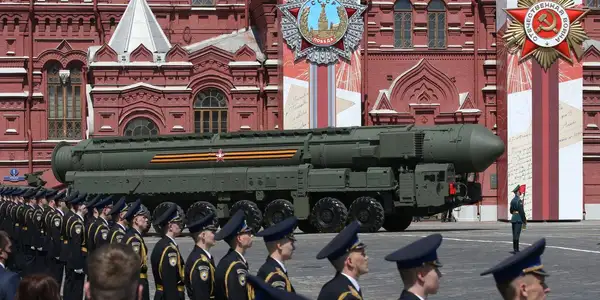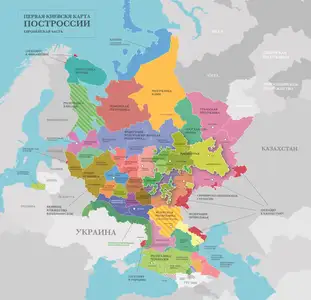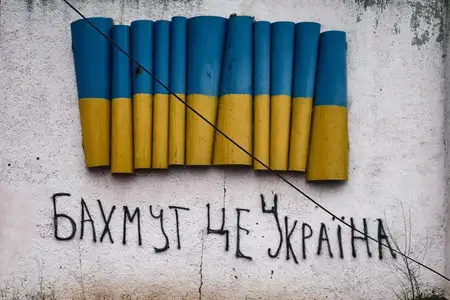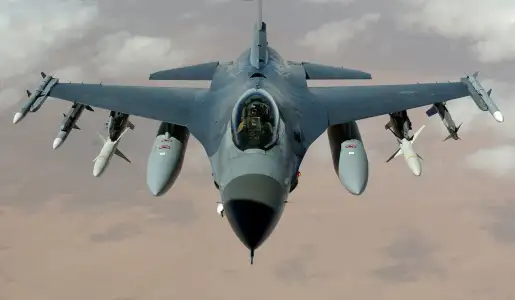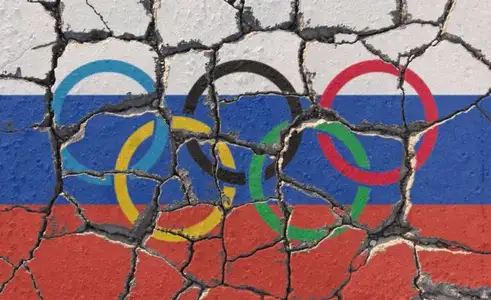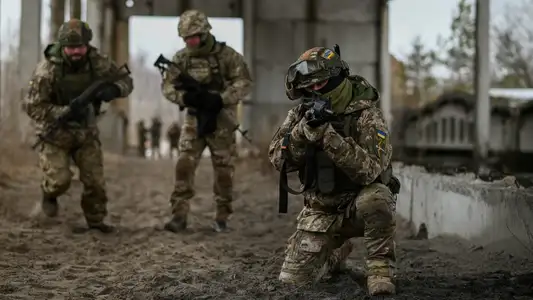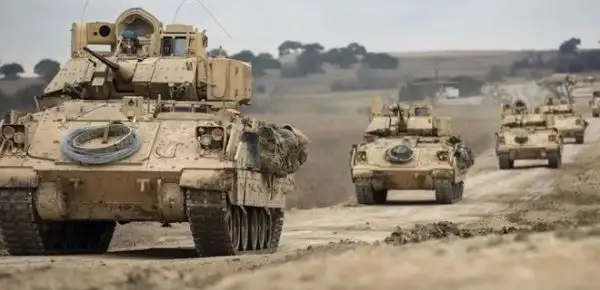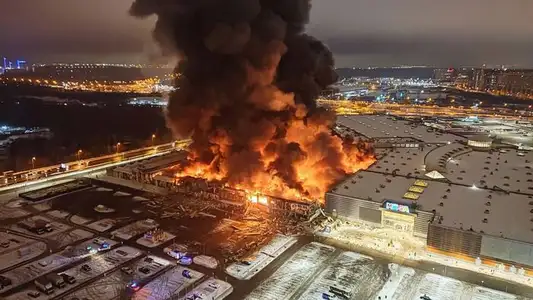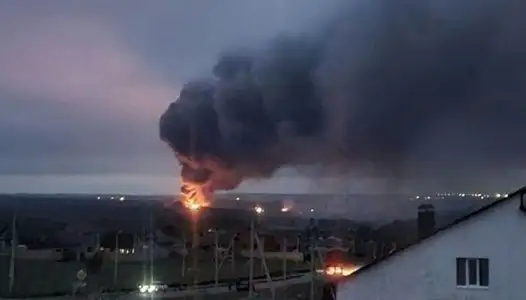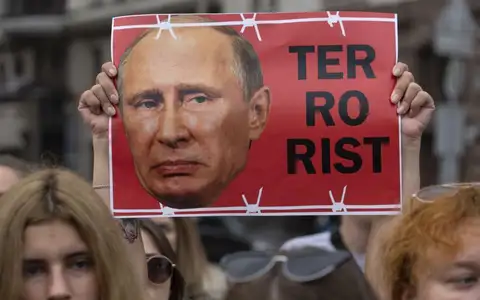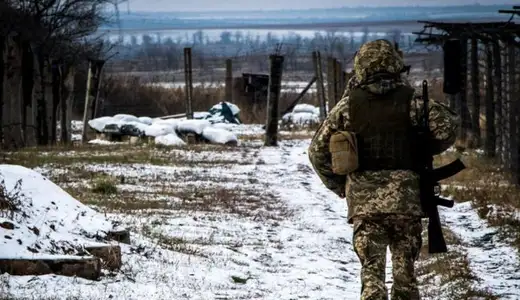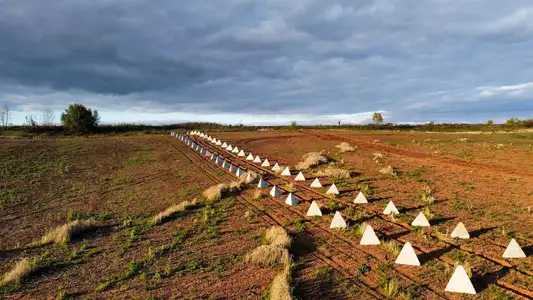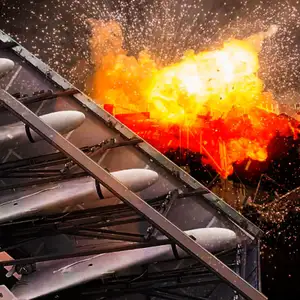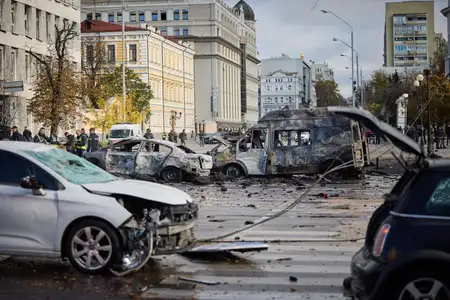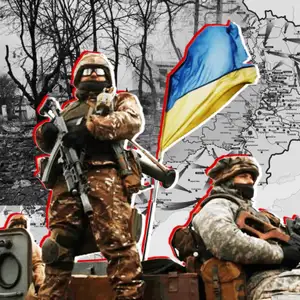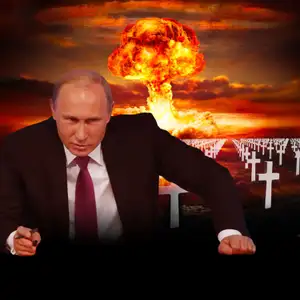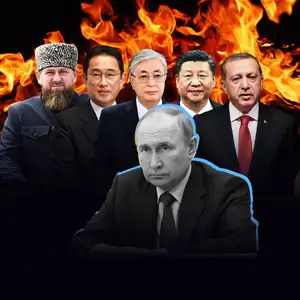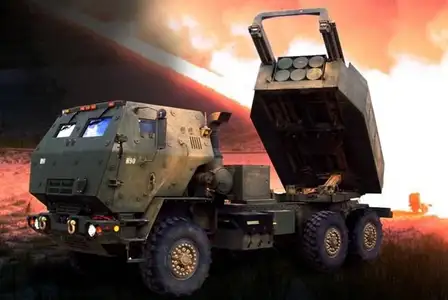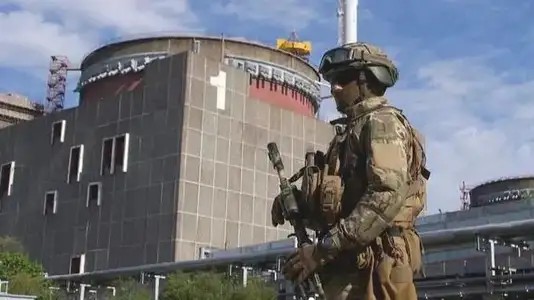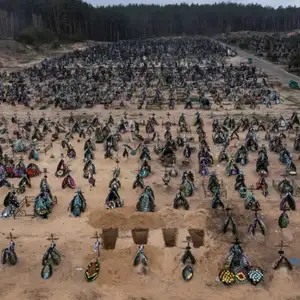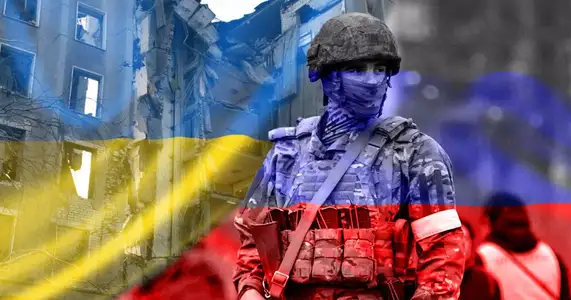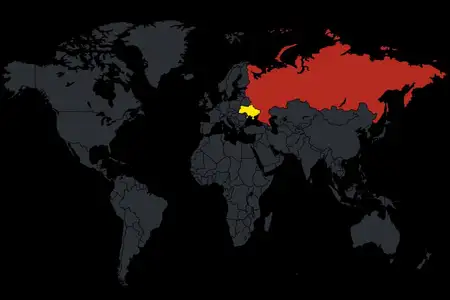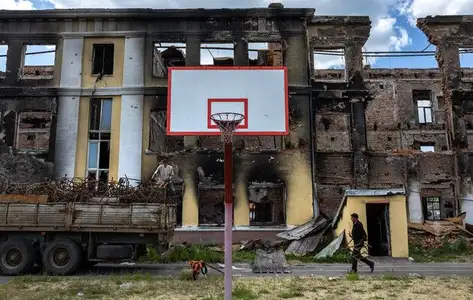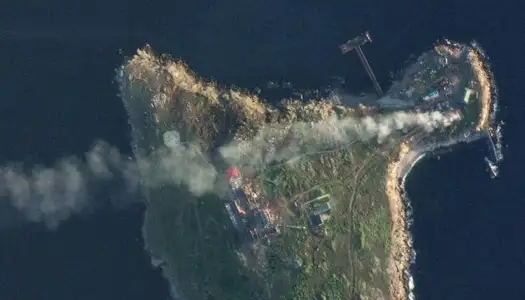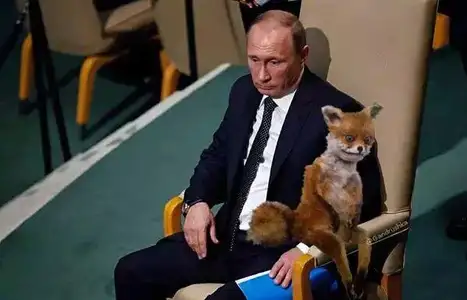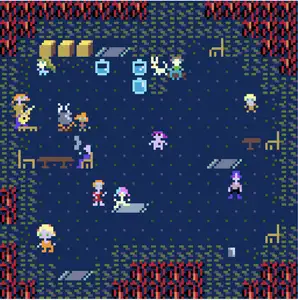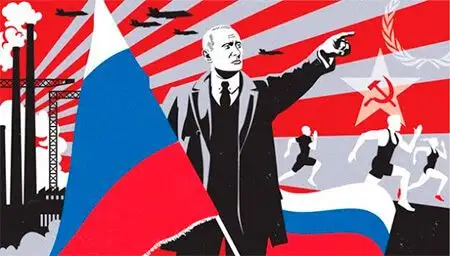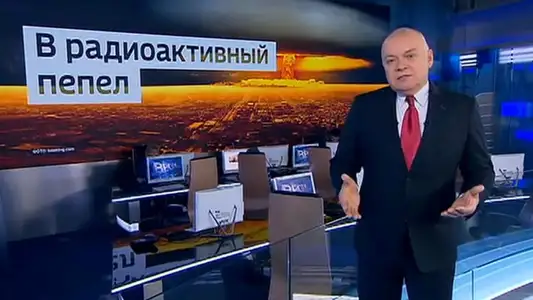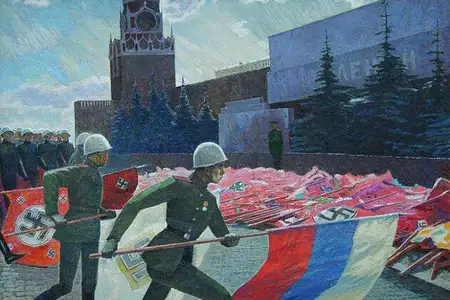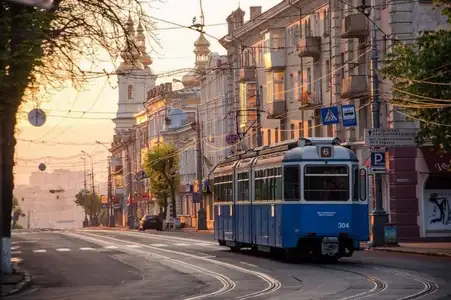Russians are killing nature, not only people
Nature and ecology are silent victims of war. We rarely think about it but war mercilessly destroys all of nature – air, water, land, plants and animals suffer.
Amidst the unthinkable human suffering that the war has brought to Ukraine, environmental problems may seem secondary. But they always have long term and heavy consequences. The longer the war lasts, the more damage it will do to the environment, and the more problems we will have in the future.
And regarding the current Russian war, we are talking not only about Ukraine. It can have its effect on other European countries and other continents. Let’s figure out the main aspects of how the modern Russian war is destroying Ukrainian nature.
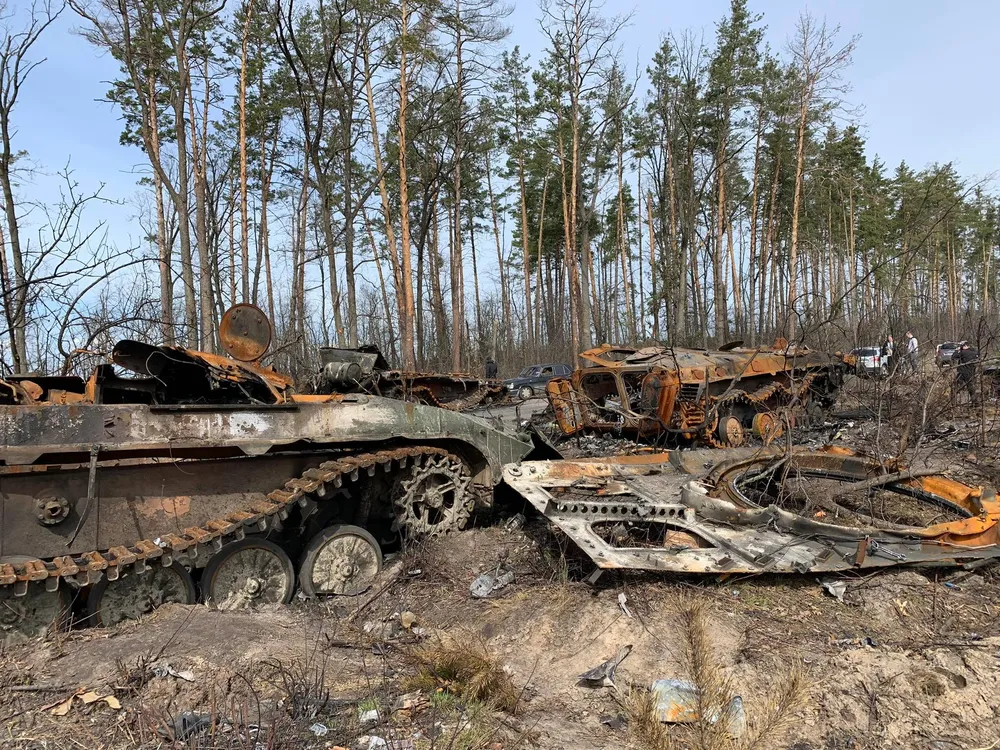
Photo: BBC (Source)
War and nature. Ecocide
If you asked people in the street when wars began to affect nature, most of them would name the 20th century, the 19th century at most. Unfortunately, this is not the case. The history of wars is also the history of the destruction of nature.
Humans began to compete with each other from the very beginning of their existence. For the first hundred thousand years their confrontation was “ecological”, so there was no significant impact on nature. But as the means of production were improved, humans, no longer completely dependent on the wealth of wildlife, began to fight not for food resources, but for territory.
It was from then on, that nature began to suffer from wars. Even the most primitive fortifications as well as use of natural objects, purposeful destruction of natural resources in enemy territory, movement of large masses of people, mass graves etc. impacted the nature negatively for centuries.
The wars of the 20th century (and not just the two world wars) aggravated the situation tenfold. After all, it was then that the development of weapons and transport took on an unprecedented scale.
In 1971, American biologist and bioethicist professor Arthur Galston proposed the term “ecocide” to define widespread destruction of the environment after wars. At present, discussions continue on international criminalizing actions that bear the characteristics of ecocide and including them in the list of the greatest crimes along with genocide, crimes against humanity, war crimes and aggression.
Scientists say, Russians do irreparable harm to Ukraine’s nature and bring the world closer to an eco-catastrophe. We also suggest that the actions of the Russian Federation towards Ukraine should be considered, among other things, as ecocide. What else can you call it, if not ecocide?
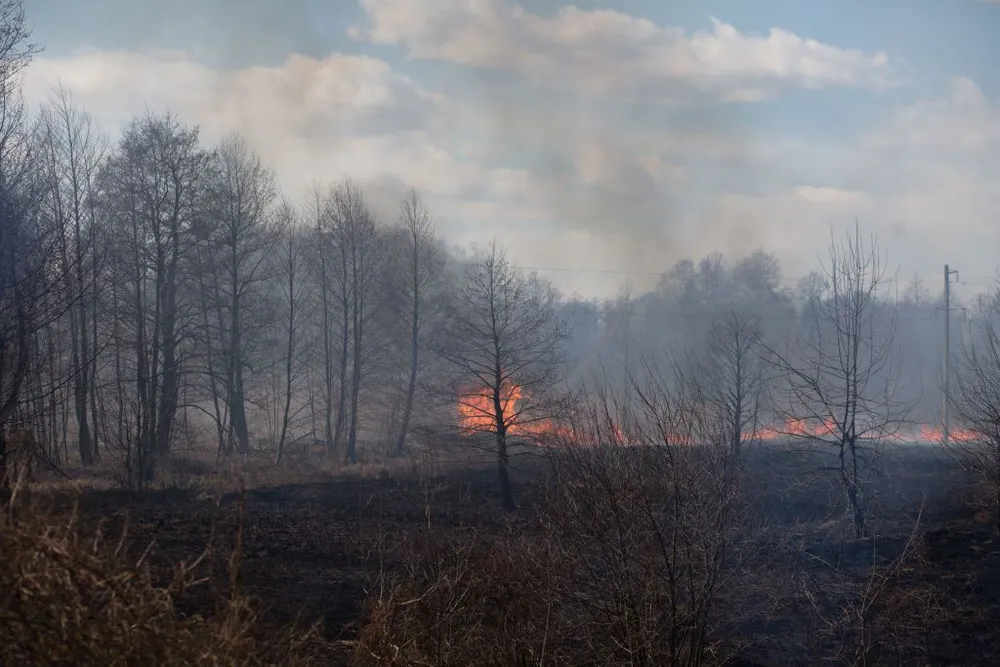
Forest fire in Kyiv region after shelling. March 27 (Source)
The very entry of Russian troops into Ukraine is devastating
Due to its geography and climate, Ukraine can be proud of a stunning wealth of flora and fauna. Its territory accounts for 35% of Europe's biodiversity. There are 70,000 plant and animal species, many of which are rare or endemic, i.e. unique to the area. Now, about one third of the area of natural reserve fund of Ukraine is being directly impacted by the war, experts say. We are talking about several dozen natural and biosphere reserves, national and regional nature parks.
In the first days of the full-scale invasion, Russian troops moved within the available infrastructure. But (unexpected for them) the hostilities have dragged on – and so the Russians changed tactics and began to prepare for extended confrontations. To do this, they are forming bases and fortifications.
This means that they are moving deeper into natural areas, occupying forests and natural reserves.
The movement of heavy equipment, construction of fortifications and combat operations damage the soil cover. This leads to the degradation of the vegetation cover and increases wind and water erosion. Also, Russian troops destroy our forests, using the wood for building fortifications, laying infrastructure, heating, and cooking.
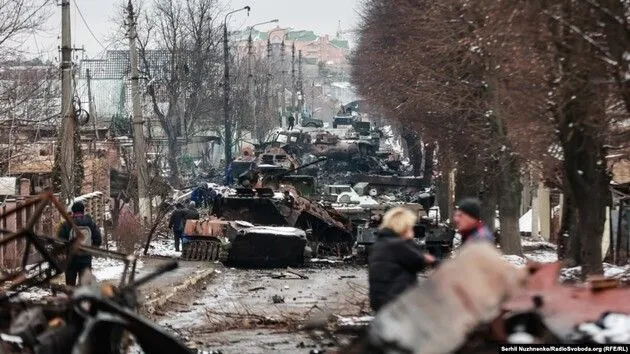
Photo: Serhii Nuzhnenko, Radio Svoboda
Shells, missiles, bombs, explosives have ruining effect
They, of course, bring much more harm than the soldiers themselves. Shells, missiles, and bombs penetrate deep into the ground destroying everything around them. Modern grenades and land mines have a huge number of fragments when they explode.
One of the biggest problems are ammunition remnants and mine contamination of natural areas. Today, according to the UN, Ukraine is one of the most mined countries in the world. More than 80,000 square kilometers of Ukrainian territory need to be cleared of mines and explosive remnants.
Towns and villages are usually cleared relatively quickly, while forests remain undemined for decades.
In addition to soil destruction and the destruction of animals directly by explosions and shell fragments, the new munitions cause forest and steppe fires. To all this we must add such types of pollution as acoustic and chemical pollution (both by the products of the explosion and the products of combustion caused by explosions).
During an explosion, all substances undergo complete oxidation, and the products of the chemical reaction are released into the atmosphere. The main ones are carbon dioxide and water vapor, which are greenhouse gases. In the atmosphere, sulfur and nitrogen oxides can cause acid rain, which changes the pH of the soil and causes plant burns. Acid rain also negatively affects humans, other mammals, and birds, affecting mucous tissues and respiratory organs.
Imagine, Ukrainian people and nature are suffering from all of that right now!
Explosions and fighting are destroying the ecosystem
As ecologists explain, explosions, of which there are now hundreds every day across Ukraine, destroy the ecosystem. The fighting disturbs the peace of wild animals, and they either die or try to escape from the hot spots. Noise or light at night, especially during the quiet season, and stress can disrupt the life cycles of birds and mammals.
The fact that the Russian full-scale invasion began in the spring made the situation even worse. After all, this is the time when animals wake up, birds return home, and all living creatures prepare to have offspring. Disturbance and noise pollution in their habitats negatively affect the course of the breeding season. This is especially detrimental to rare species.
Moreover, the direct impact of shells and pollution by burned military equipment completely destroys the ecosystem. All bursting ammunition, burning of non-metallic parts of military equipment contaminates soils and water with heavy metals and toxic elements.
Thousands of Russian tanks and armored vehicles pollute the ground with fuel and lubricants, and the burned ones continue to cause damage already as scrap metal. This is carcinogenic trash, and as long as it remains on the ground, it poisons the environment with heavy metals that get into the groundwater. Burning machinery, grease, diesel and gasoline also pollutes the air.
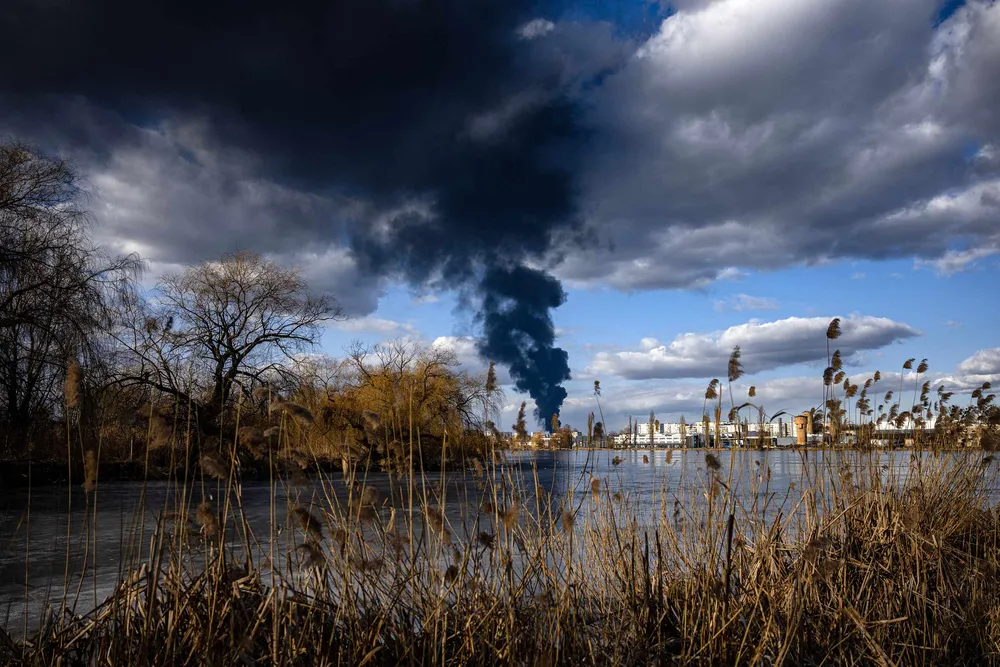
Smoke rages over the city of Vasylkiv near Kyiv after Russian overnight strikes on an oil depot, February 27. Photo: DIMITAR DILKOFF / AFP via Getty Images
Destruction of industrial objects is particularly dangerous
The Russians are purposefully destroying oil depots, bombing factories and plants, and shooting at nuclear power units. According to the Geneva Conventions, this is a war crime.
Each fire at an oil depot is a technogenic disaster. According to the calculations of environmentalists, during a fire at an oil depot with several tanks, the amount of atmospheric pollution emitted is about as much as the entire transport of Kyiv produces in a month.
There are more than 1,000 depots of hazardous substances in Ukraine, and if bombs are accidentally or intentionally dropped there, air, water, soil, etc. can be contaminated. For example, on March 21, Russian troops shelled the works Sumykhimprom, Sumy region, which resulted in an ammonia leakage into the air. A nitrogen leakage happened on the works in Rubizhne, Luhansk region.
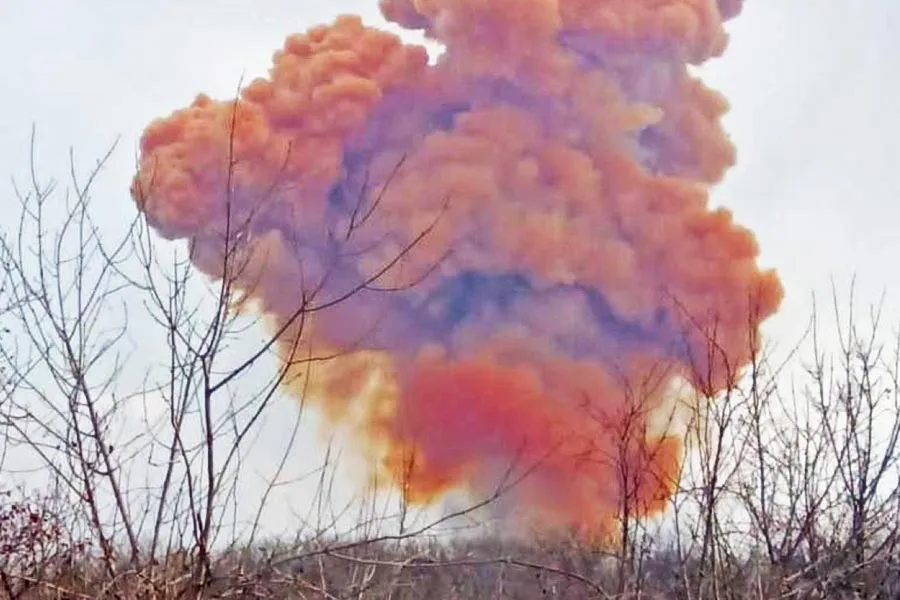
After the attack on the works in Rubizhne in early April. Photo: Regional Administration Luhansk
Threat of a nuclear catastrophe
While the world is speculating with horror about whether Putin will use nuclear weapons or no, Ukraine has been living under the threat of nuclear catastrophe for five months now.
What the occupiers are doing to Ukrainian nuclear power plants is insane, and Ukraine has long called it “nuclear terrorism”. On the first day of the invasion, the Russian military seized the Chernobyl nuclear power plant, and the exclusion zone was under occupation for more than a month. Experts recorded rising radiation levels.
Since March 4, the occupiers have seized Zaporizhzhia NPP, the largest nuclear power plant in Europe. Since then, Russians have been gradually transforming the NPP into a military base with many weapons and explosives. The IAEA says risk of an accident at the NPP is growing every day. In case of destruction of nuclear power plants, radioactive contamination would make large areas uninhabitable, experts say.
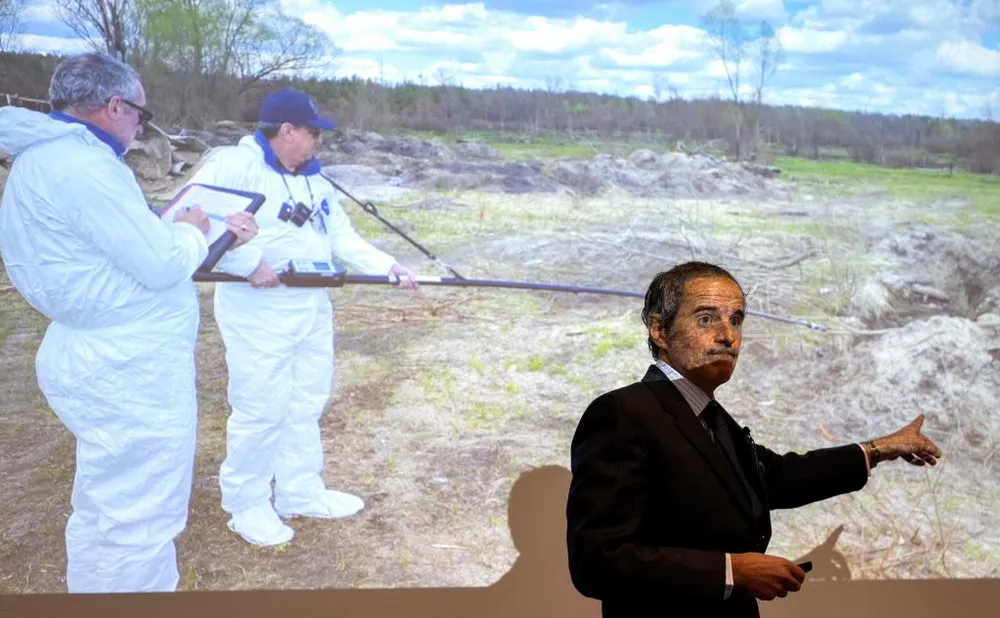
IAEA director general is telling about the situation at Ukrainian nuclear power plants (Source)
Damage of cities and housing infrastructure
When military activity destroys cities, the environment also suffers. Damage to public utilities leads to water pollution in rivers and reservoirs. Such pollution can lead to large-scale water blooms in the Dnipro River and the Black Sea.
Because of shelling a lot of buildings are damaged so construction debris mixed with elements of military equipment is formed. It is unsafe both to transport and store it in the landfill. Therefore, it is necessary to create a separate protocol for handling this type of waste in cities, experts say.

Photo: Associated Press
Sea under attack
The has rudely interfered into the ecosystem of the Black Sea. The Russian military mined a part of its water area as well as fired with powerful shells from surface and submarine boats. More and more dolphin corpses are found on the coast in the Odesa region. As explained by ecologists, the animals have no traces of poachers on them. They could have died because they lost their orientation by echo-signals. The Russian military uses sonar at high decibel levels, and this harms the dolphins’ hearing. According to experts, it is now impossible to estimate how many dead animals may be in the sea.
Russian troops are attacking port infrastructure along the coasts of the Black and Azov Seas and ships at anchorages, resulting in water pollution and the spread of toxic substances into the sea. Oil products negatively affect marine biocenoses by forming films on the water surface, which disrupts the exchange of energy, heat, moisture, and gases between the sea and the atmosphere. In addition, they have a direct impact on the physicochemical and hydrological conditions, causing death of fish, sea birds and microorganisms.
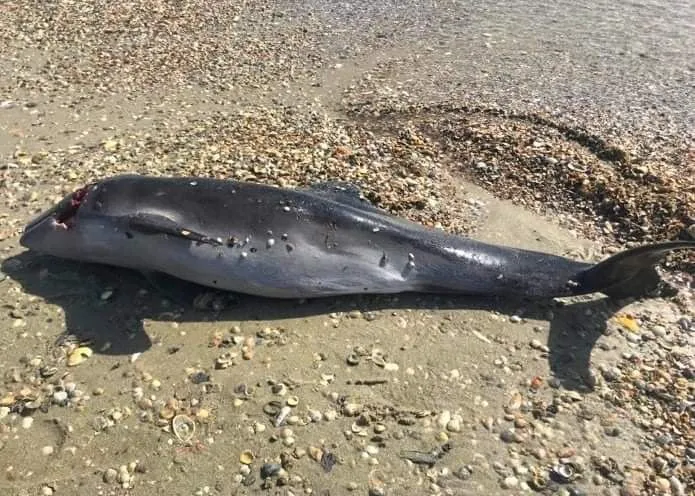
A dead dolphin found on the sea coast in the Odesa region. Photo: Ivan Rusev (Source)
Does the war in Ukraine affect the environment of the world?
At the global level, experts highlight two important aspects: food security and climate change policy.
Because of military operations, Ukrainian farmers could not sow a part of fields in the eastern and southern regions, which will affect the amount of grain we will be able to export in the fall. There are countries that are 90% dependent on Ukrainian grain. There are also countries dependent on Russian fertilizers, which are subject to sanctions. Supply chains cannot be reoriented quickly, so this war will have global food consequences.
Now Ukraine is demanding that the European Union imposes an embargo on hydrocarbons and already three Baltic countries have refused to import Russian oil and gas. In general, Europe is 40% dependent on Russian gas and 28% on oil. Large enterprises depend on it, so the larger the country, the harder it is to refuse Russian hydrocarbons (for example, Germany). Therefore, many countries in Europe are increasingly talking about green technology and renewable energy sources. Thus, the war in Ukraine will definitely affect the plans of European countries.
Photo: Sergii Glotov
What about the future?
Today, of great importance are activities by the Ministry of Environmental Protection, Parliament, civil society and ecological organizations (also outside of Ukraine), so that all damage to the environment is recorded as much as possible and subsequently compensated by the aggressor. Minister of Environmental Protection, Ruslan Strelets, has already stated that Ukraine may become the first country in the world to receive reparations for crimes against the environment.
The experts say, it is also important that Ukraine’s recovery plan includes measures to restore and preserve ecosystems, and that human settlements recovery plans include nature-centered solutions and measures to adapt to climate change. Ukraine is already a part of the European program Life, which finances environmental projects and has huge budgets.
No matter how dire our current situation may seem, we should always have hope. And we have hope that maybe when Ukrainian cities and towns will be rebuilt, we can do them more ecological – reduce the number of cars, make a system of bicycle lanes, increase the energy resistance of houses. Maybe the whole situation is our chance not only to abandon Russia's oil and gas, but also to get rid of dependence on fossil fuels in general.
So, there is a lot of work ahead of us – both Ukrainians and our international partners. Ukraine will recover.
Anastasiya Glotova
